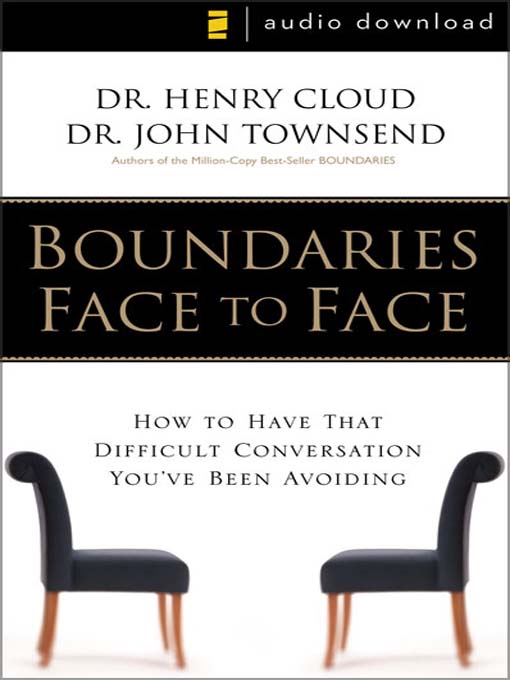A practical handbook on positive confrontation by the authors of the award-winning and best-selling Boundaries. Successful people confront well. They know that setting healthy boundaries improves relationships. They have discovered that uncomfortable—even dangerous—situations can often be avoided or resolved through direct conversation. But most of us don't know how to go about having difficult conversations. We see confrontation as scary or adversarial. We're afraid to ask a boss for a raise or talk to a relative about a drinking problem, or even address a relational conflict with a spouse or someone we are dating. In Boundaries Face to Face authors Cloud and Townsend take the principles from their best-selling book Boundaries and apply them to a variety of the most common difficult situations and relationships.
- Newly Added Audiobooks
- Most Popular Audiobooks
- Try Something Different
- No Wait Audiobooks!
- See all audiobooks collections

